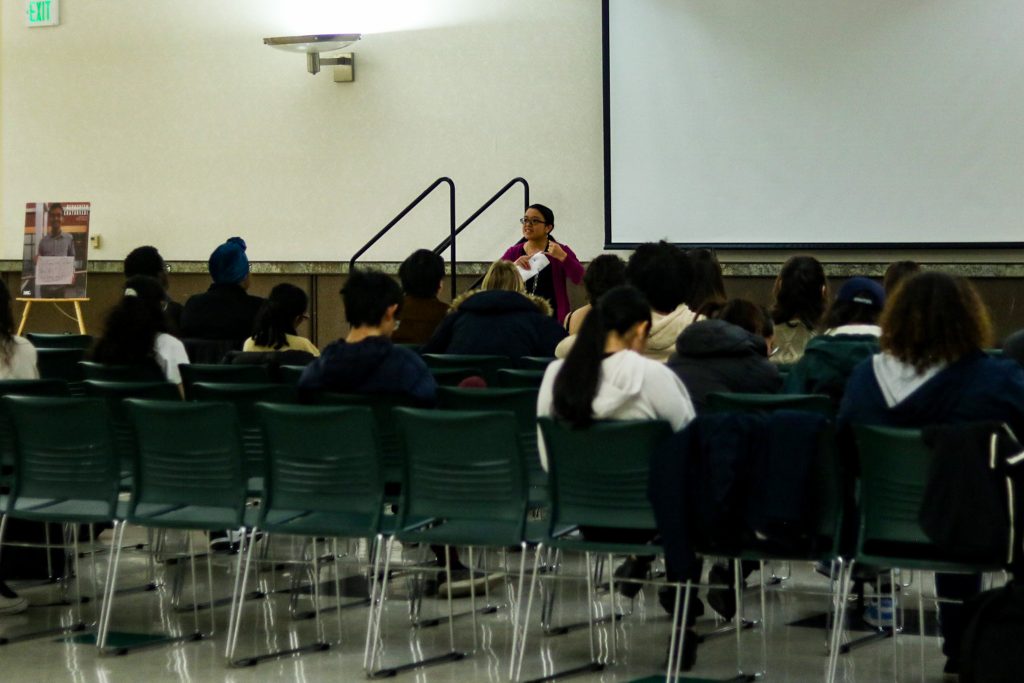The Binghamton University Association of Mixed Students (BAMS) discussed microaggressions and their effects on mental health this past Monday.
The event, titled “Microaggressions: Diversity is Strength,” was hosted by BAMS on March 20 from 7 p.m. to 9 p.m. in the Old Union Hall. BAMS is a campus organization focused on providing an environment where students of mixed backgrounds can express concerns or bring ideas to the community. BAMS members and audience members participated in conversation, discussing shared experiences and potential solutions.
Kayleigh McGeeney, the president of BAMS and a junior double-majoring in mathematics and history began the event by introducing the subject.
“A microaggression is defined as everyday verbal comments or non-verbal actions that communicate a derogatory or negative message to a person solely based on the group they may belong to,” McGreeney said. “These can be gender, sexual orientation, disabilities, race or ethnicity and age. A key thing about microaggressions is that sometimes they can be unintentional.”
McGeeney elaborated on the reason behind the event’s theme.
“This is an event our alumni used to hold,” McGeeney said. “It is important because microaggressions are very common. Many times there are not any discussions about microaggressions, especially those that occur on this campus.”
McGeeney then described microaggressions and their effects on individuals over time. She asked audience members to participate by expressing their view on the subject and their experiences.
After McGeeney finished, she handed the podium to Cynthia Marasigan, assistant professor at the department of Asian and Asian American Studies. She discussed microaggressions in more detail, elaborating on the subject and its history.
“When we think about microaggressions, they’ve been around since this country started,” Marasigan said. “It was only until 1970 that scholars actually identified microaggressions, and that’s because microaggressions are hard to quantify. How are you supposed to take data on how many times someone asks where you are from or, ‘What are you?’”
Presenting next was Richie Sebuharara, the assistant director of the Multicultural Resource Center. Sebuharara started his presentation by organizing everyone in the stadium into groups. Sebuharara then began a discussion on the diversity of cultures and how people can detect and avoid microaggression. He concluded his presentation by giving tips on intercultural communication that is meant to keep people from unintentionally making microaggressions.
After the speakers finished, the students present at the event were able to disperse and partake in the different activities involving microaggressions that were offered. The six clubs BAMS partnered with were also present within their own booths, including the Corazoncitos club, Chi Upsilon Sigma, Men of Color Scholastic Society, Society of Hispanic Professional Engineers, the Latin American Student Union and the Caribbean Student Association.
Students present shared a common consensus that microaggressions and their prevention should be discussed on campus more.
Ceian Thomas, a senior majoring in graphic design, described the programming as “informative.”
“While personally I’ve never experienced it, I’m aware [microaggressions] are a thing, but I know people who have experienced it,” Thomas said. “Events like this spread awareness of it and help people to steer clear of something like that.”
Elisheva Ezor, a junior double-majoring in mathematics and business administration, emphasized the importance of people being educated on the topic of microaggressions to avoid making others uncomfortable.
“I think that it’s so important for people to come to events like this not only to have a space to speak about it,” Ezor said. “Also, to learn how to prevent themselves from making other people uncomfortable. I think it’s important to educate people about this.”



